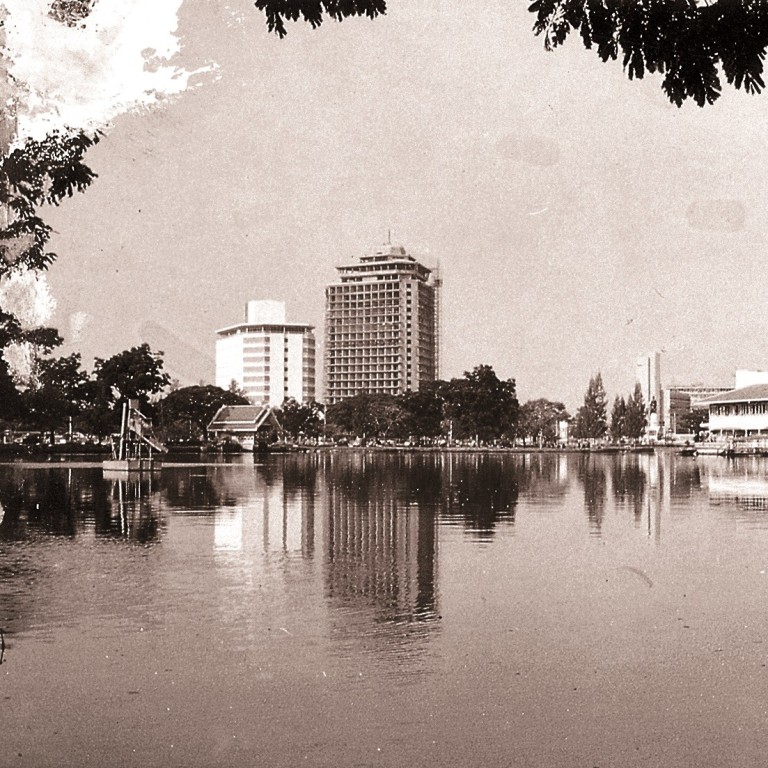
Bangkok luxury hotel Dusit Thani’s redevelopment will retain ‘Thainess’, say owners
- In 1970 the Dusit Thani opened in Bangkok, a luxury hotel emphasising ‘Thainess’
- The decision to close the hotel wasn’t easy, but the management say its character won’t change when it is redeveloped
Bangkok’s Dusit Thani hotel – a much loved landmark in the Thai capital since it opened 49 years ago – has closed to make way for a redevelopment its management insists will leave much of the building’s heritage and legacy intact.
The Dusit Thani (Heavenly City) was one of the city’s first five-star hotels when it opened for business on February 27, 1970. From day one the luxury hotel emphasised “Thainess”, from exceedingly polite service in the lobby to the golden spire atop the roof (modelled after Bangkok’s famed Temple of Dawn). At the time, most Bangkok establishments were emphasising Western modernity, and Thailand was awash with American military personnel fighting communism in nearby Indochina.
The Dusit Thani was the vision of Chanut Piyaoui, who opened her first Bangkok hotel, the three-star Princess, in 1948. Over the next seven decades, her company evolved into a multinational hospitality group with 29 hotels in 18 countries – nine self-owned and 20 managed.
Dusit International also manages 240 luxury villas in Indonesia, Thailand, Sri Lanka and the Maldives, since last year’s purchase of Elite Havens – a leading provider of holiday rentals in Asia.

For Chanut’s son, Chanin Donavanik, 63, the decision to tear down the hotel to make way for a bigger, mixed-use development was the toughest in his career – but ultimately inescapable.
“We have been losing ground to a lot of new hotels,” says Chanin, the group’s former CEO and now chairman of the executive committee. “When my mother dreamed about this hotel she wanted the brand to be the best. We are trying to keep our status and we cannot do that unless we have a drastic change.”
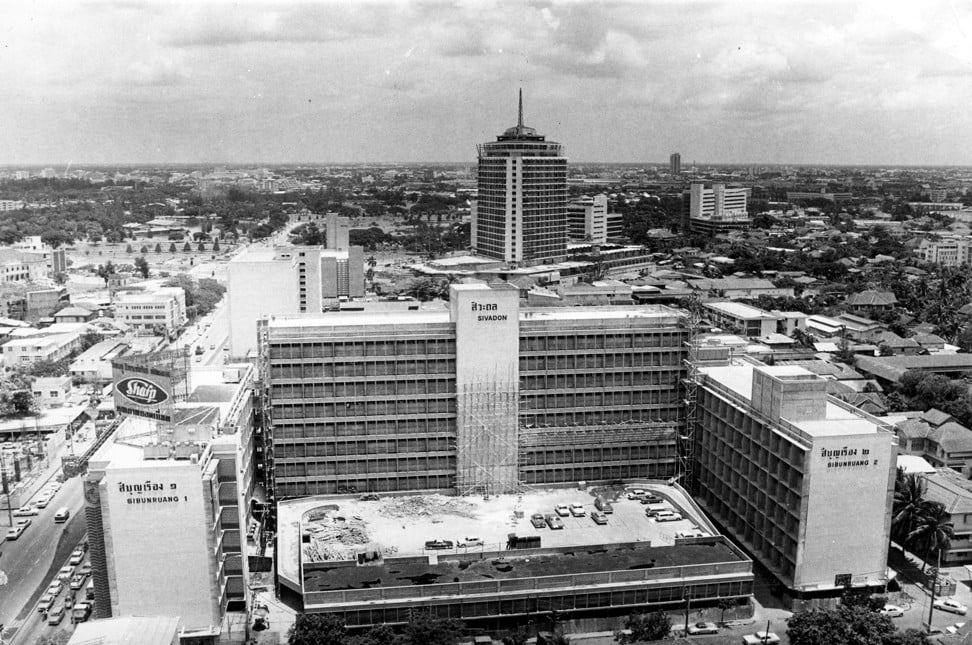
Management announced the redevelopment plan in 2017, saying the hotel would close its doors for the last time on April 16, 2018. The date was postponed to January 5, 2019, however, after a deluge of messages from guests and customers. Some expressed concerns about whether the new building “could possibly embrace our heritage and continue our legacy”, says Suphajee Suthumpun, Dusit International’s CEO since 2016.
Dusit Thani became an integral part of the Bangkok experience, not only for tourists but also Bangkokians. More than 20,000 couples were married in the hotel’s Grand Ballroom over the decades. There have been countless business deals, family outings and courtships at its award-winning restaurants, the Benjarong (Thai food) and Thien Duong (Vietnamese).
The new Dusit Thani Bangkok Hotel will be part of a larger, mixed-use complex planned for the site, at the intersection of Rama IV and Silom roads, just across from Lumphini Park.
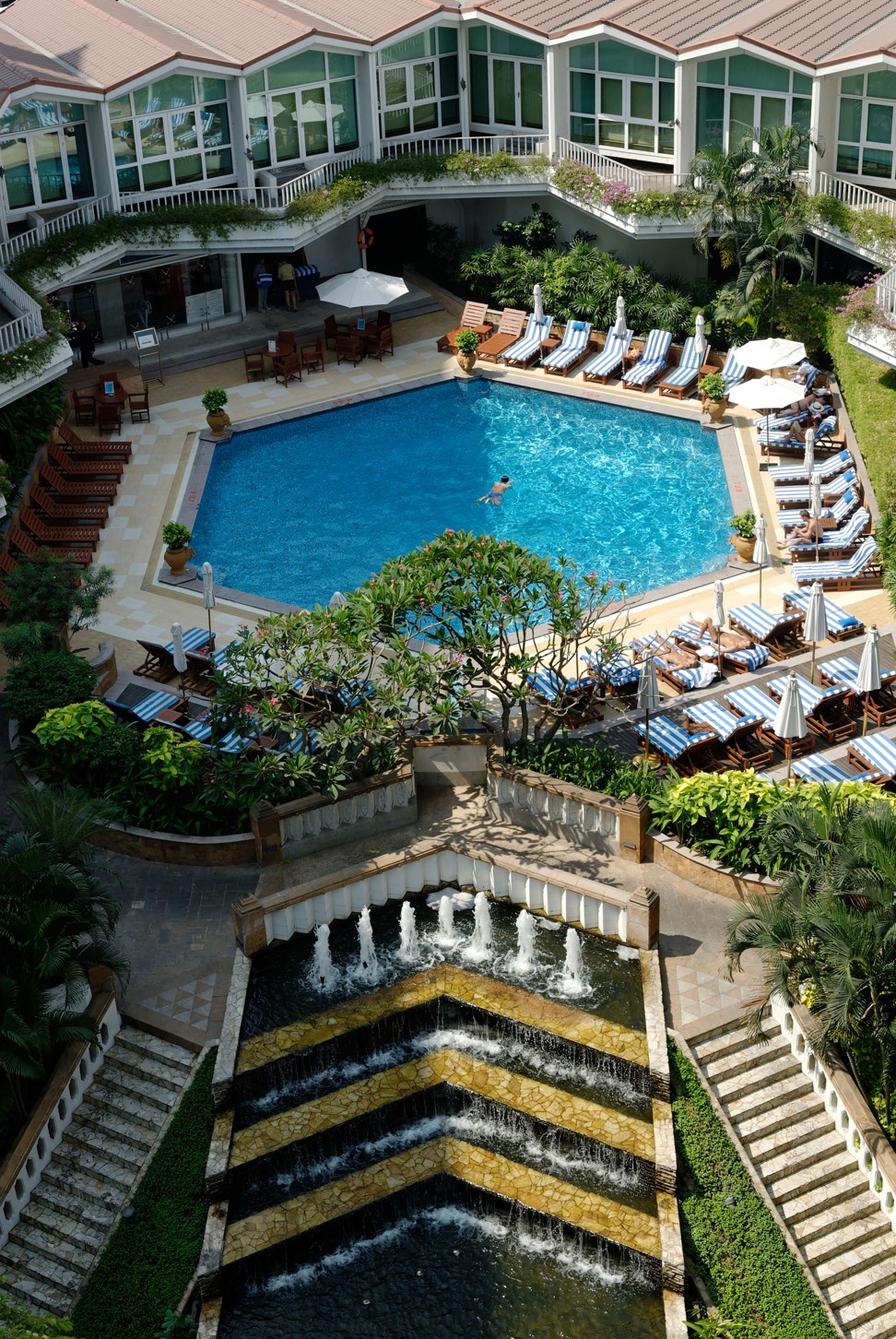
The site, covering 3.8 hectares, is owned by the Crown Property Bureau – the investment arm of Thai King Maha Vajiralongkorn Bodindradebayavarangkun and one of the largest land holders in Thailand. Dusit Thani’s management approached the bureau in 2017 to discuss the proposed redevelopment and the possibility of leasing additional land adjacent to the hotel.
The bureau agreed, expanding the site by 25 per cent and providing Dusit Thani International with a seven-year right to develop the land, followed by a 60-year leasehold, at an undisclosed price. Since then, the clock has been ticking.
Details of the project, which has been dubbed Dusit Central Park, were announced on April 1 at a press event co-hosted by Dusit Thani Public Company and project partner Central Pattana – part of the Central Department Store Group.

Upon completion in 2023/24, the project will comprise the 39-storey, 250-room Dusit Thani Bangkok Hotel, a 69-storey Residences condominium, an 80,000 square metre Central Park Shopping Complex and 40-storey Central Park Offices. The entire investment in the 440,000 square metre site is estimated at 36.7 billion baht (US$1.16 billion).
There will be plenty of competition for Dusit Central Park because mixed-use complexes have become all the rage in Bangkok of late. Just down Rama IV Road, construction is under way on One Bangkok, owned by Thai liquor and property tycoon Charoen Sirivadhanabhakdi. Also situated on land owned by the Crown Property Bureau, Charoen’s mixed-use development is slated to open in 2020.
“Other developments will help the whole street become more lively … because in the past the majority of activities happened on Sukhumvit Road,” Suphajee says. “With our project we think Rama IV will become the forefront of Bangkok again.”
With easy access to both the underground MRT and overhead BTS railway networks, management claim that Dusit Central Park will have “unrivalled connectivity”. It will become the future “Super Core CBD” with easy access to the four main Bangkok districts – Ratchaprasong Road (north), Charoen Krung Road (south), Sukhumvit Road (east) and Yaowarat Road in Chinatown (west).
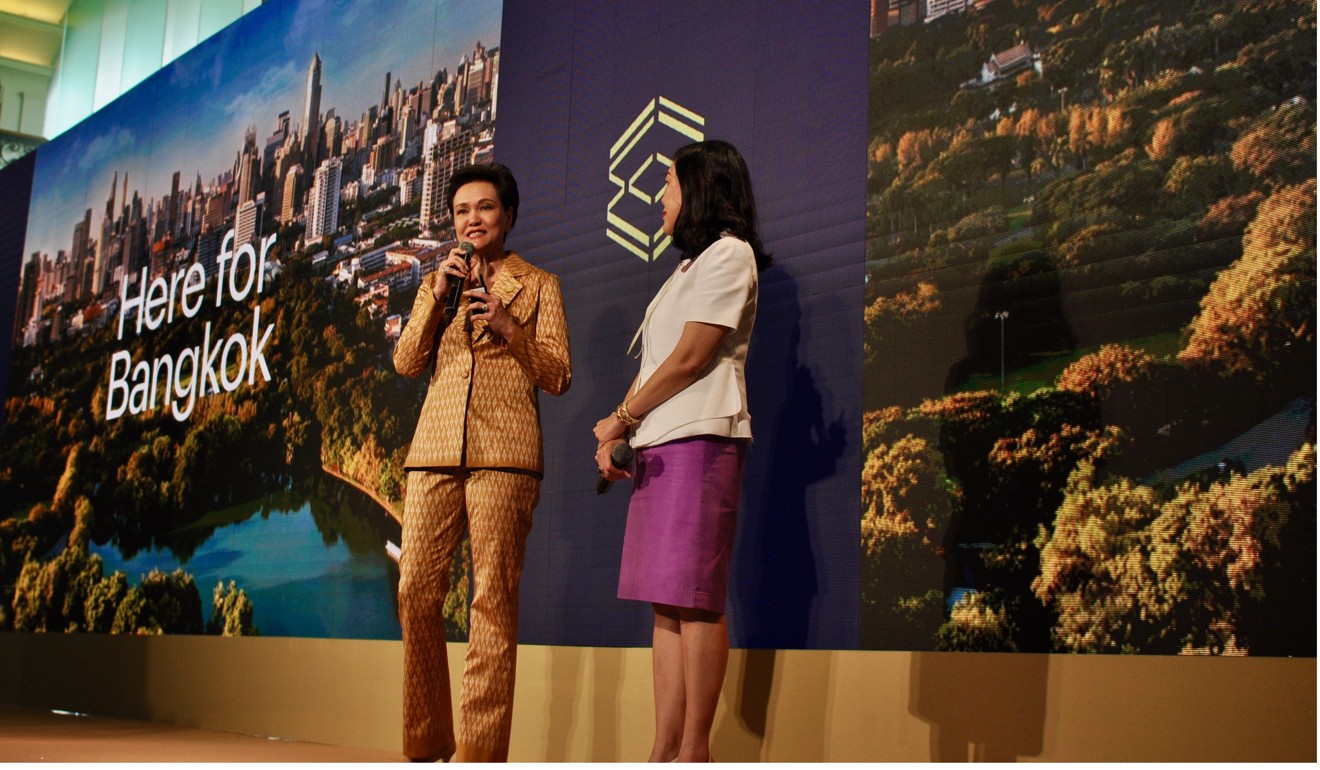
The management hope that Dusit Central Park will outshine all its mixed-use rivals thanks to Dusit Thani’s legacy and a number of innovations, such as green space in the complex and rooftop gardens.
All 250 rooms in the new Dusit Thani Bangkok Hotel will have views of Lumphini Park, as will all the condominium units in the Residences.
The new hotel will preserve or replicate much of the old structure’s heritage. There will be a golden spire on the rooftop and an indoor waterfall. The Hindu/Buddhist shrine near the junction of Silom and Rama IV roads will be kept, as will the banyan tree planted by Chanut decades ago.
In the past the majority of activities happened on Sukhumvit Road. With our project we think Rama IV will become the forefront of Bangkok again
“I want to do this in a way that I keep my mother’s legacy,” Chanin says.
For Dusit International, the project also marks a turning point. The old Dusit Thani accounted for nearly 17 per cent of the group’s annual revenue, or about 1 billion baht a year. That is revenue it must do without for the next four or five years.
“This project is only part of the journey,” Suphajee says. “It is time to transform ourselves to stay strong, relevant to the industry. This is actually our main objective.”
Part of the transformation involves moving into new business segments. The process started last year with the acquisition of Elite Havens, a company established in 1998 to provide integrated marketing, reservations, concierge and management services for 250 luxury villas in Indonesia, Thailand, Sri Lanka and the Maldives.
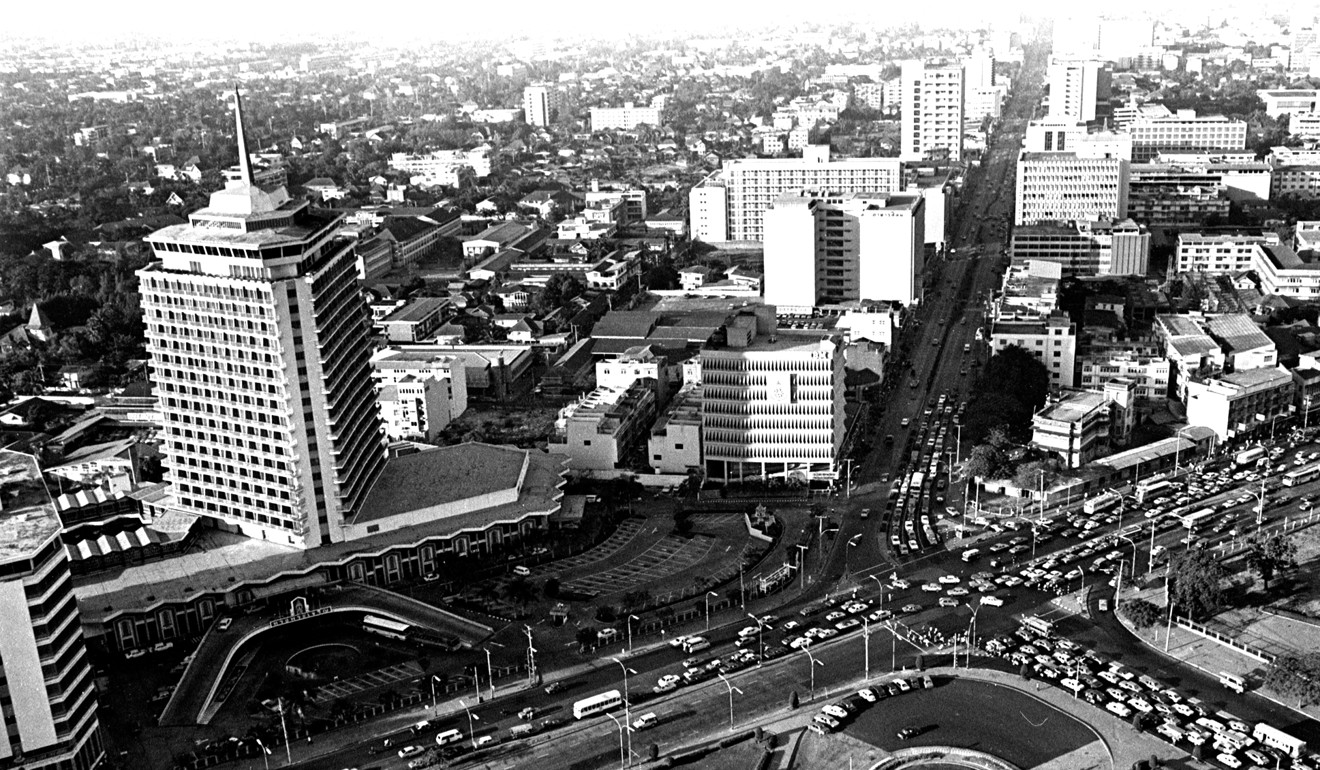
The group also acquired a 26 per cent share in NR Instant Produce Company, a producer of ready-to-eat prepacked meals and traditional Thai sauces. Additionally it launched a new hotel brand, Asai, targeting the “millennial lifestyle market”.
“We have seen a lot of these brands coming up in the US and EU, but we haven’t seen much coming up in Asia,” says Suradej Donavanik, managing director of Asai Hotels, and Chanin’s son.
The World Travel Organisation has estimated that millennial travellers accounted for 30 per cent of global travellers last year.
With Asai (Thai for “live”, or “inhabit”), Dusit has become the first Asia-based hospitality group to specifically target the “millennial mindset”, Suradej claims.
Asai hotels will be cheaper than Dusit’s other brands – Dusit Thani, Dusit Devarana, Dusit Princess and Dusit D2 – with rooms costing around 1,400 to 1,600 baht. The average room size will be 16 square metres, but there will be a lot more communal space.
“We don’t have any lobby because we think a lobby is a waste of space, so we have turned our lobbies into work-eat spaces,” Suradej says.
I want to do this in a way that I keep my mother’s legacy
The Asai brand will also provide a “community experience”, which means they will be situated in interesting, somewhat hip neighbourhoods. The first Asai hotel is expected to open later this year in Bangkok’s Chinatown, near the new MRT station.
“We are going to have a property in Yangon and three in the Philippines, and we are hoping to find one in Japan,” Suradej says. “I think this concept is perfect for Japan.”
While Asai will target the lower end of the market, the Dusit Thani brand will continue to aim at the more deep-pocketed crowd.
“We strongly believe that the luxury market still exists,” says Suphajee, “but the budget hotels actually make more profit than luxury hotels because you don’t have as many staff.”
